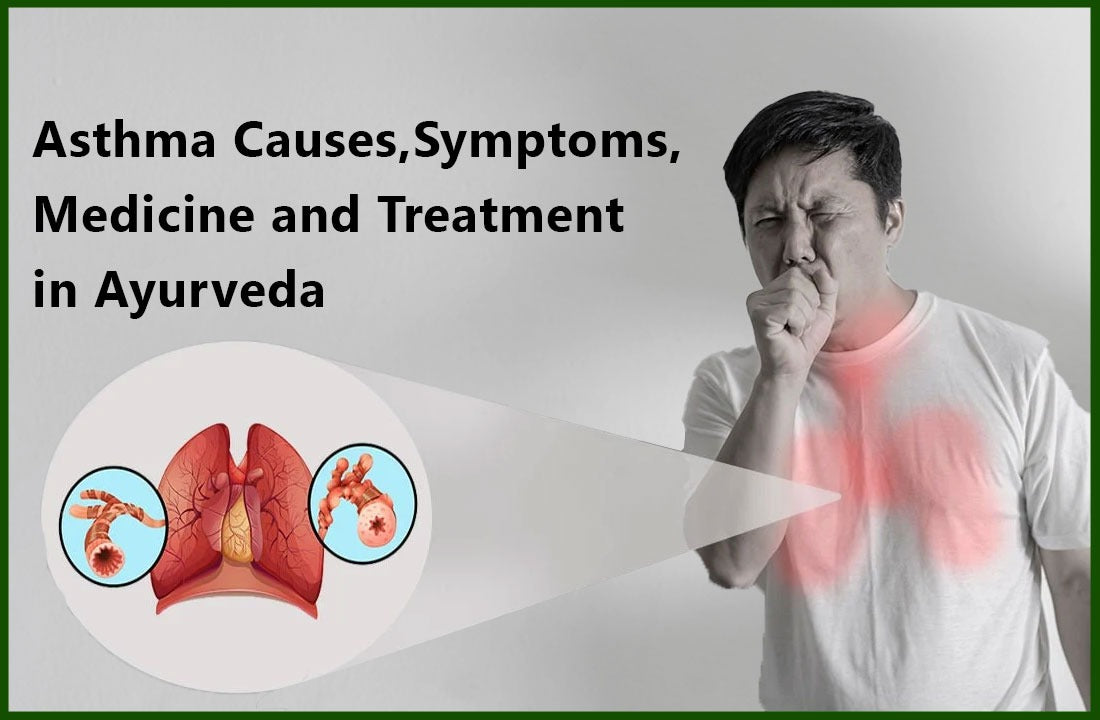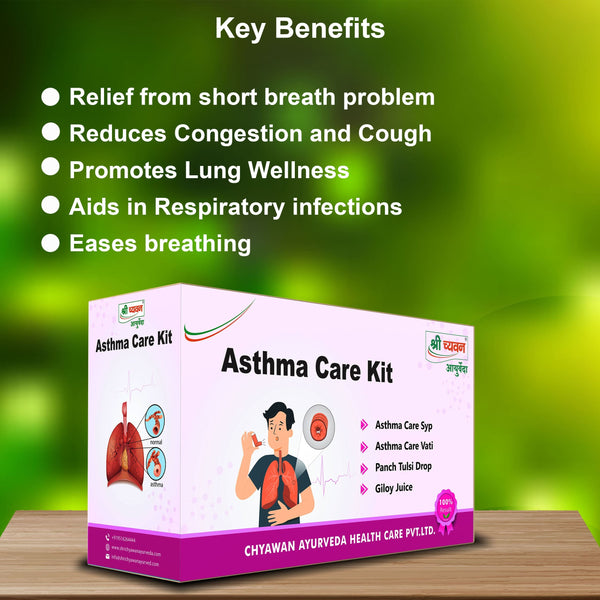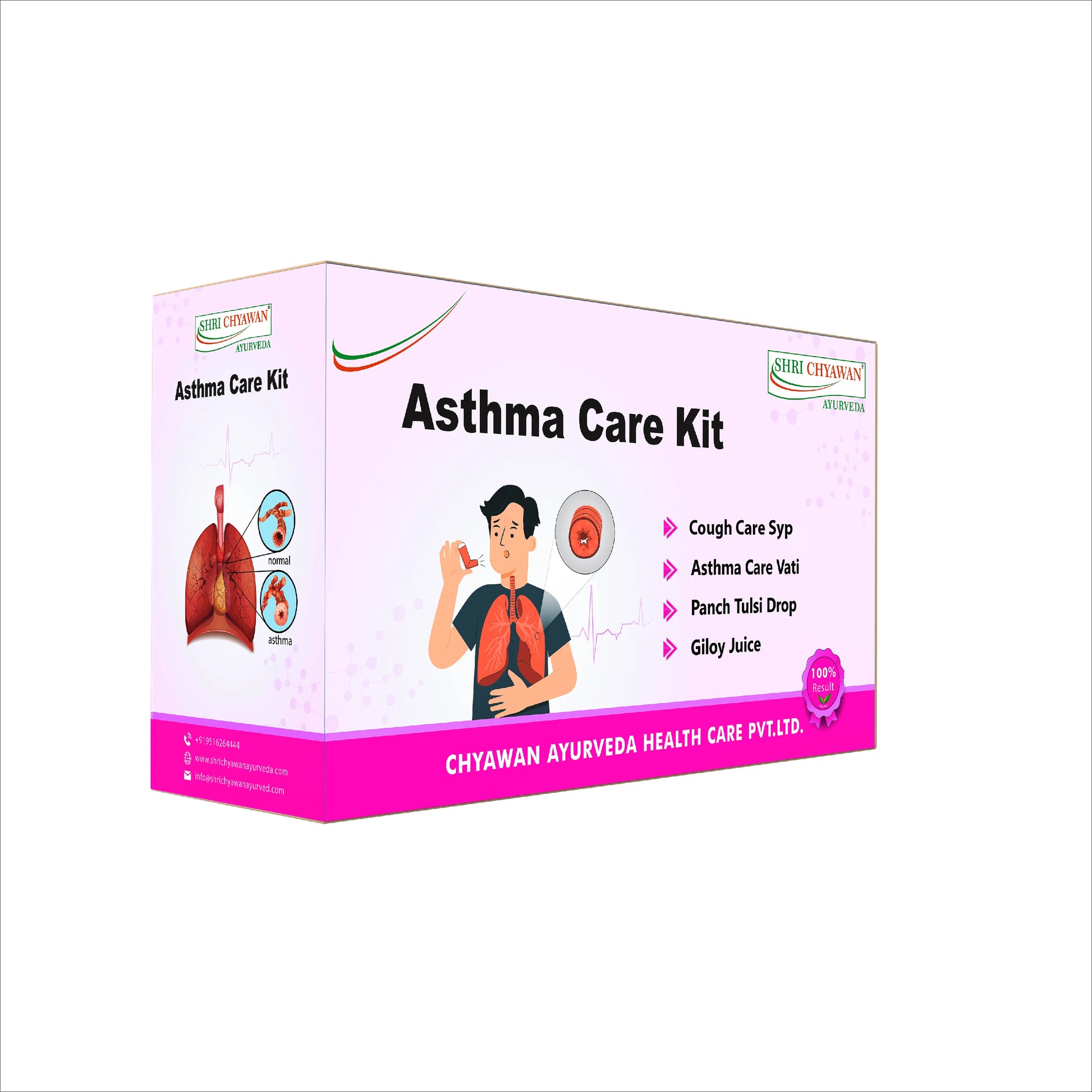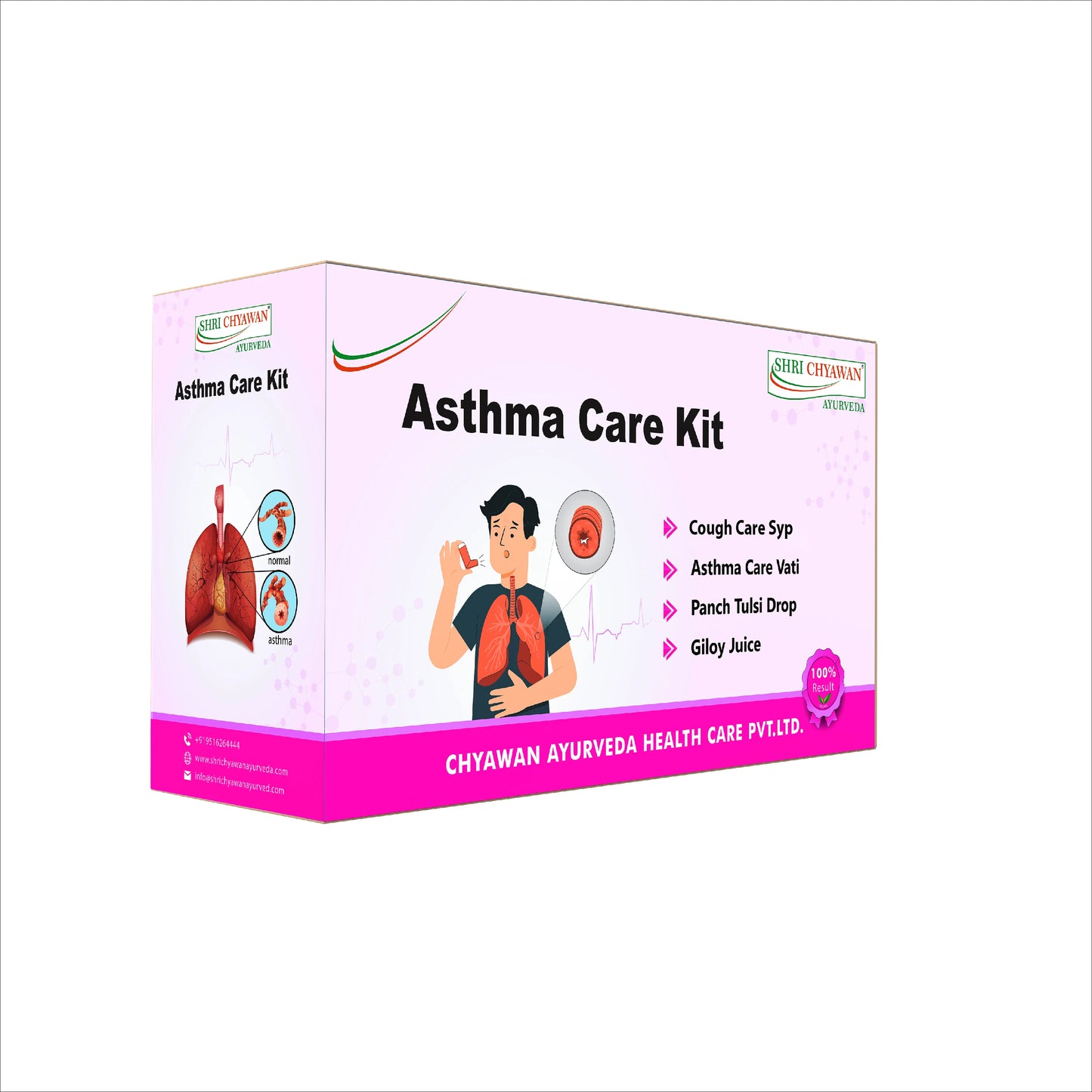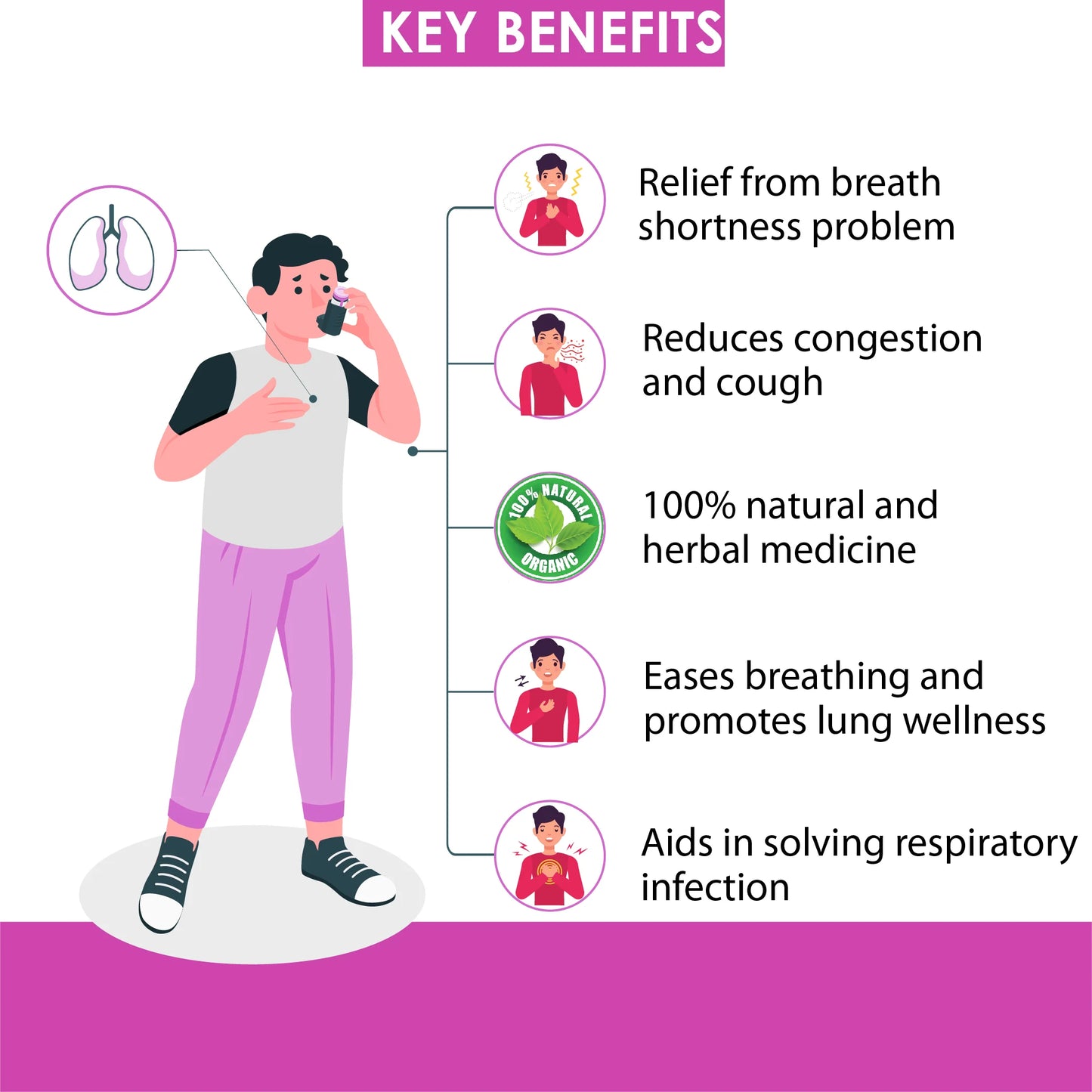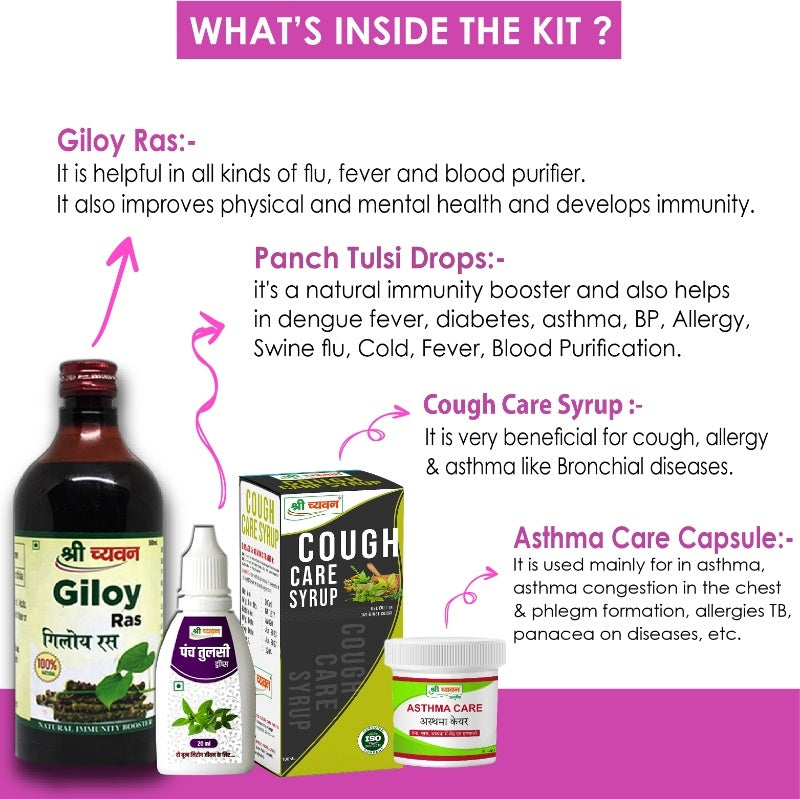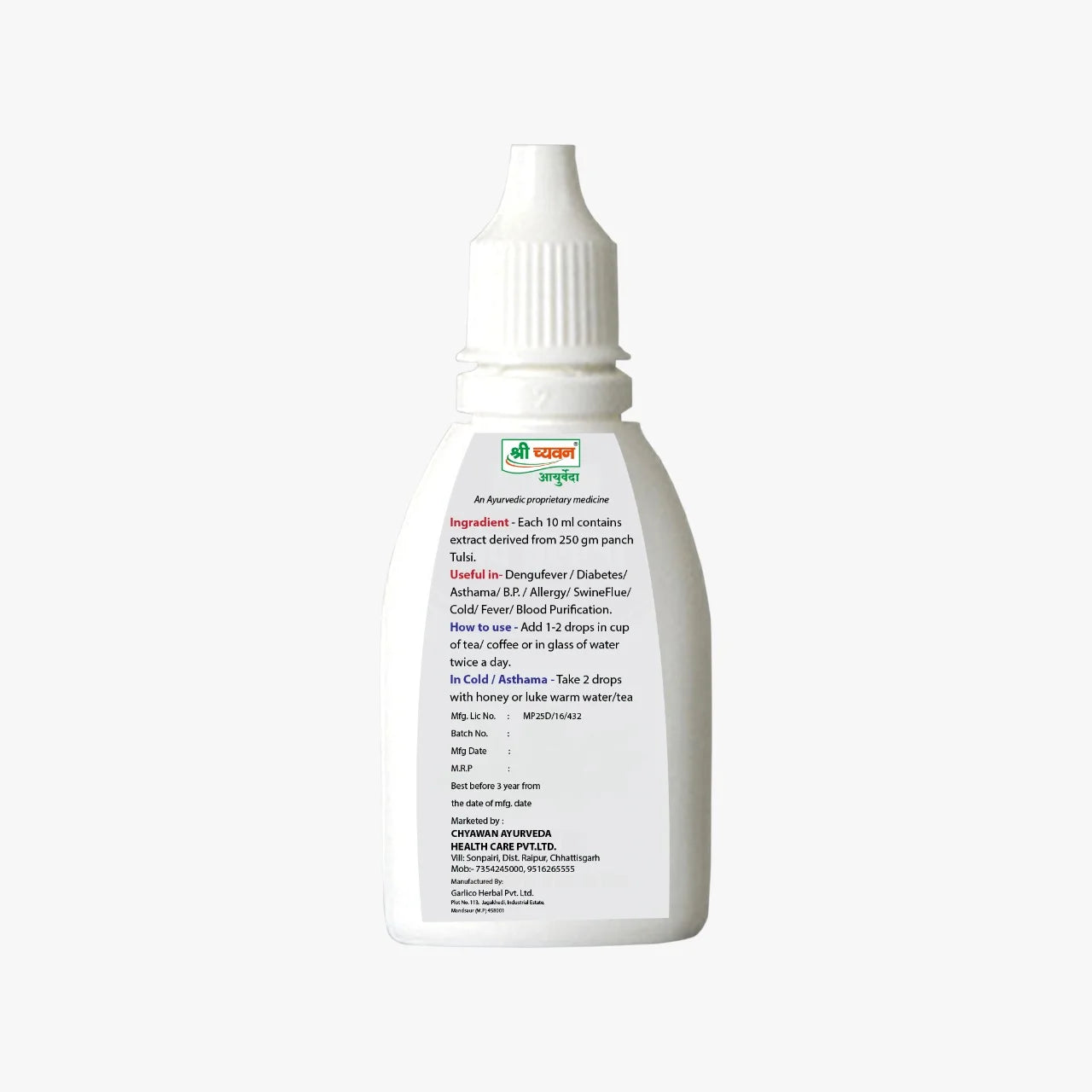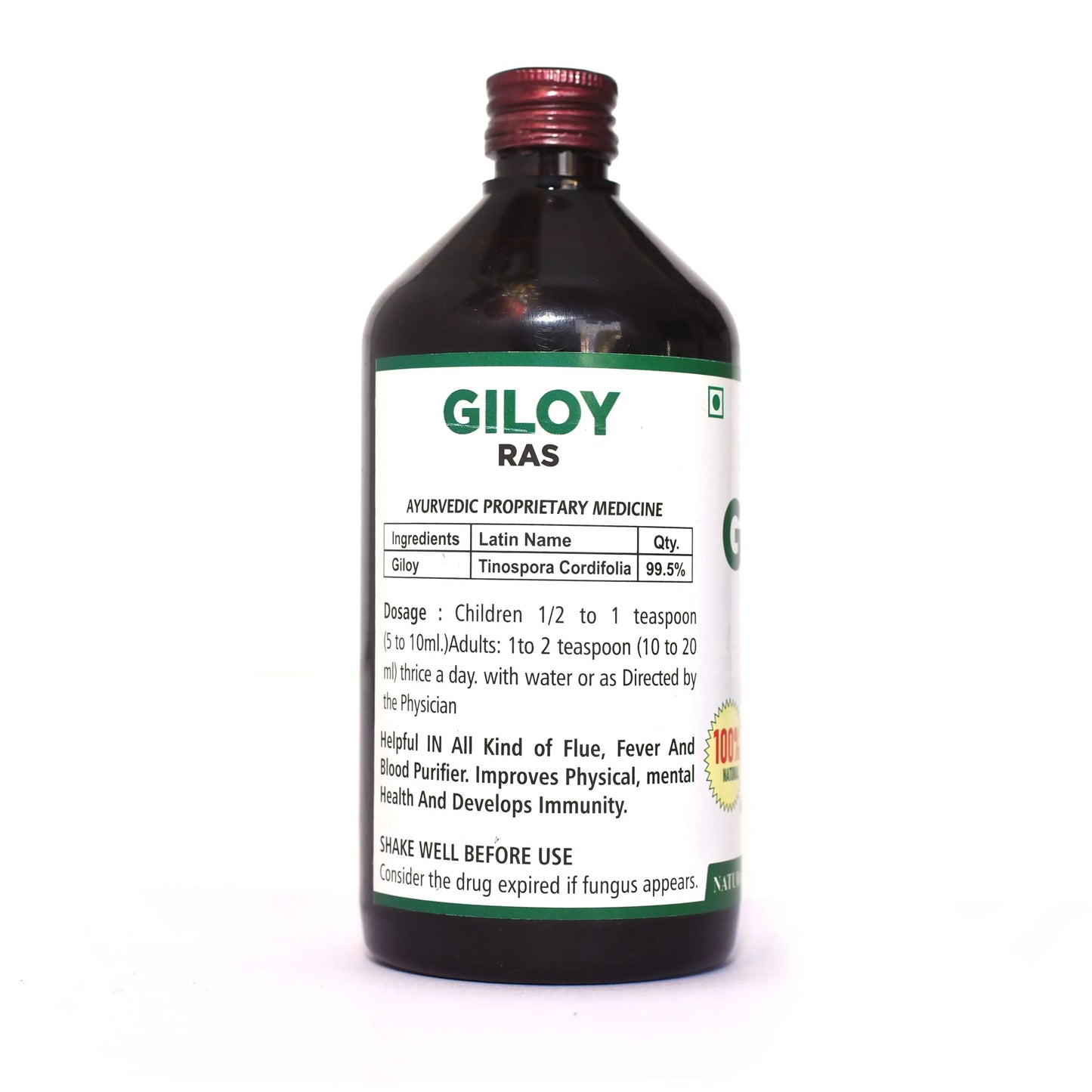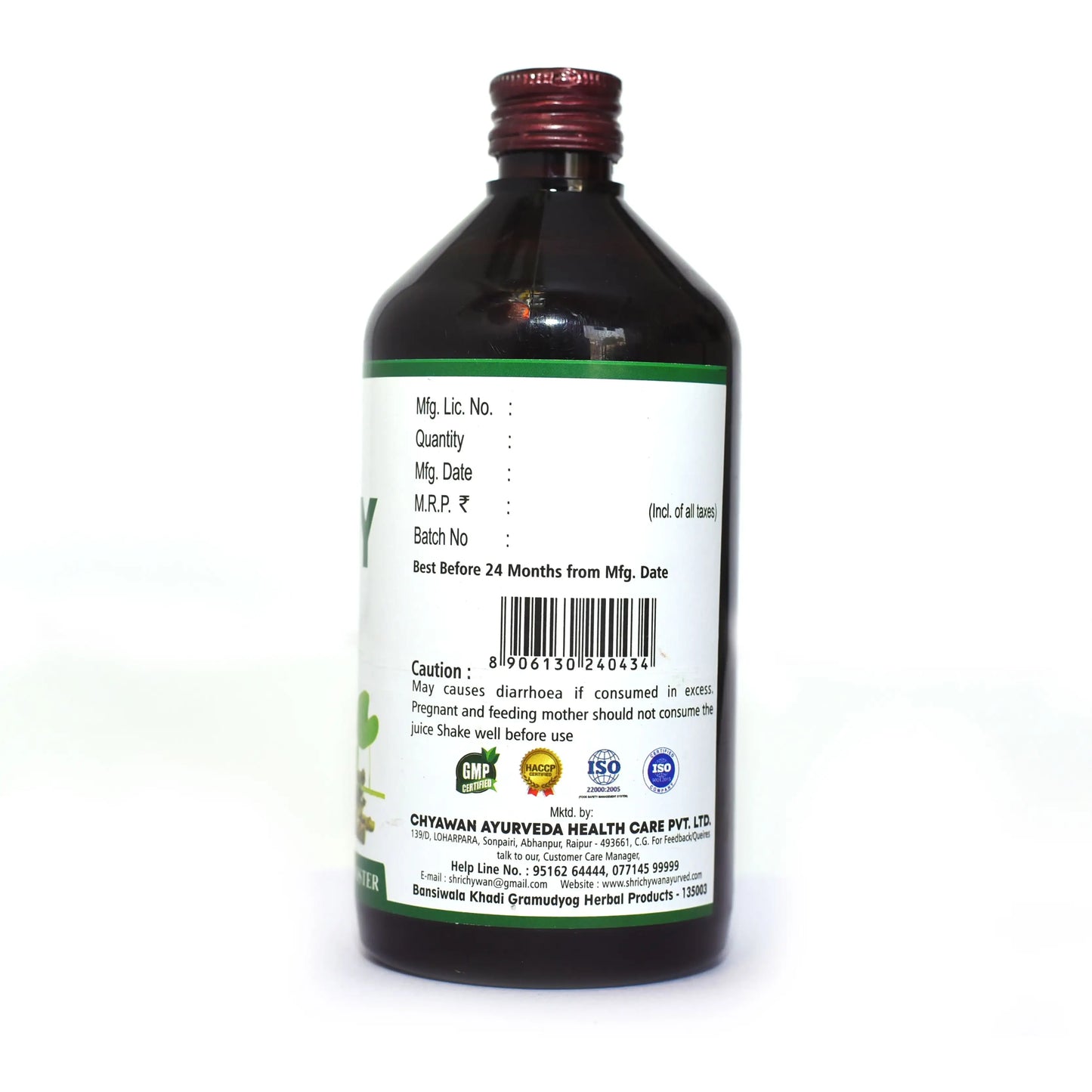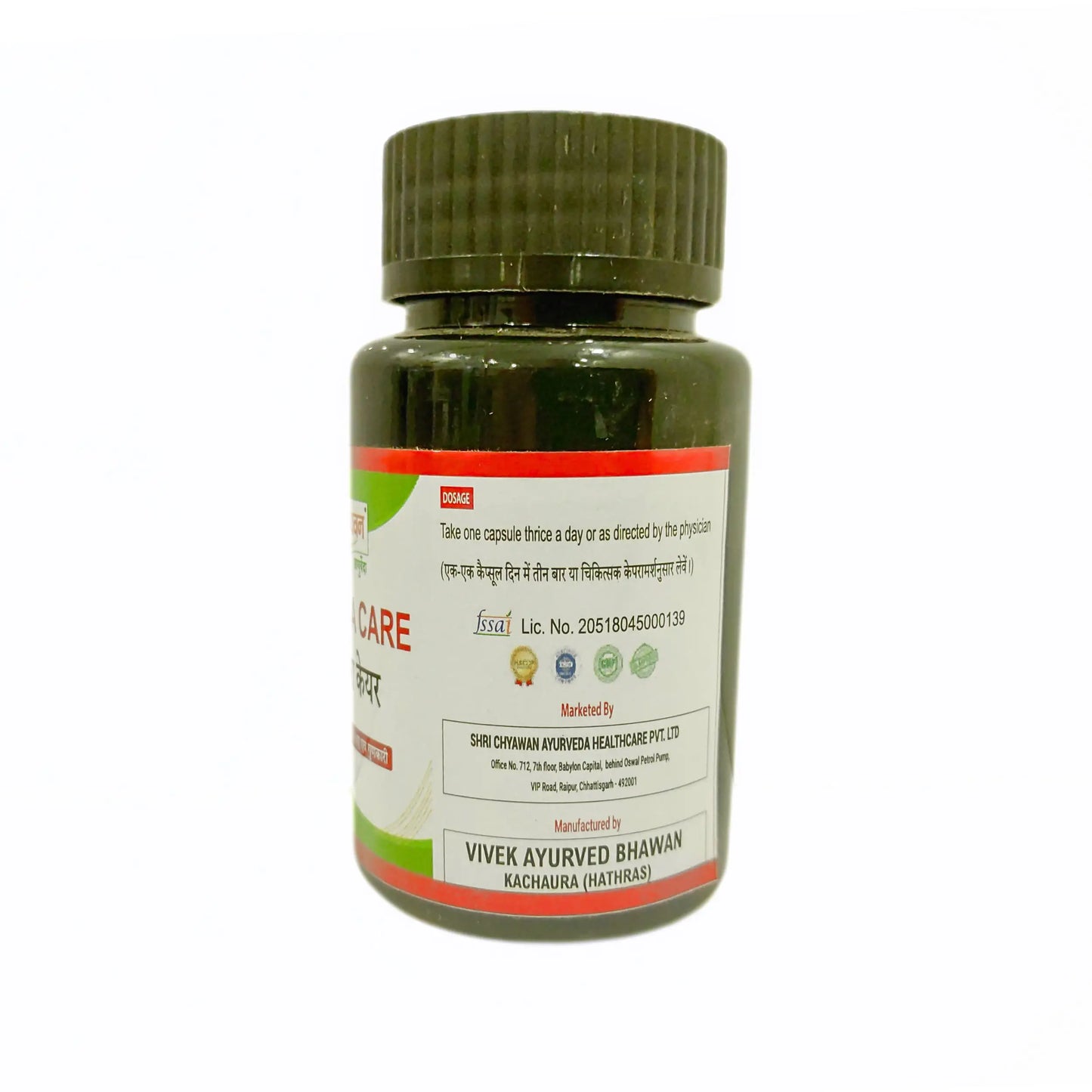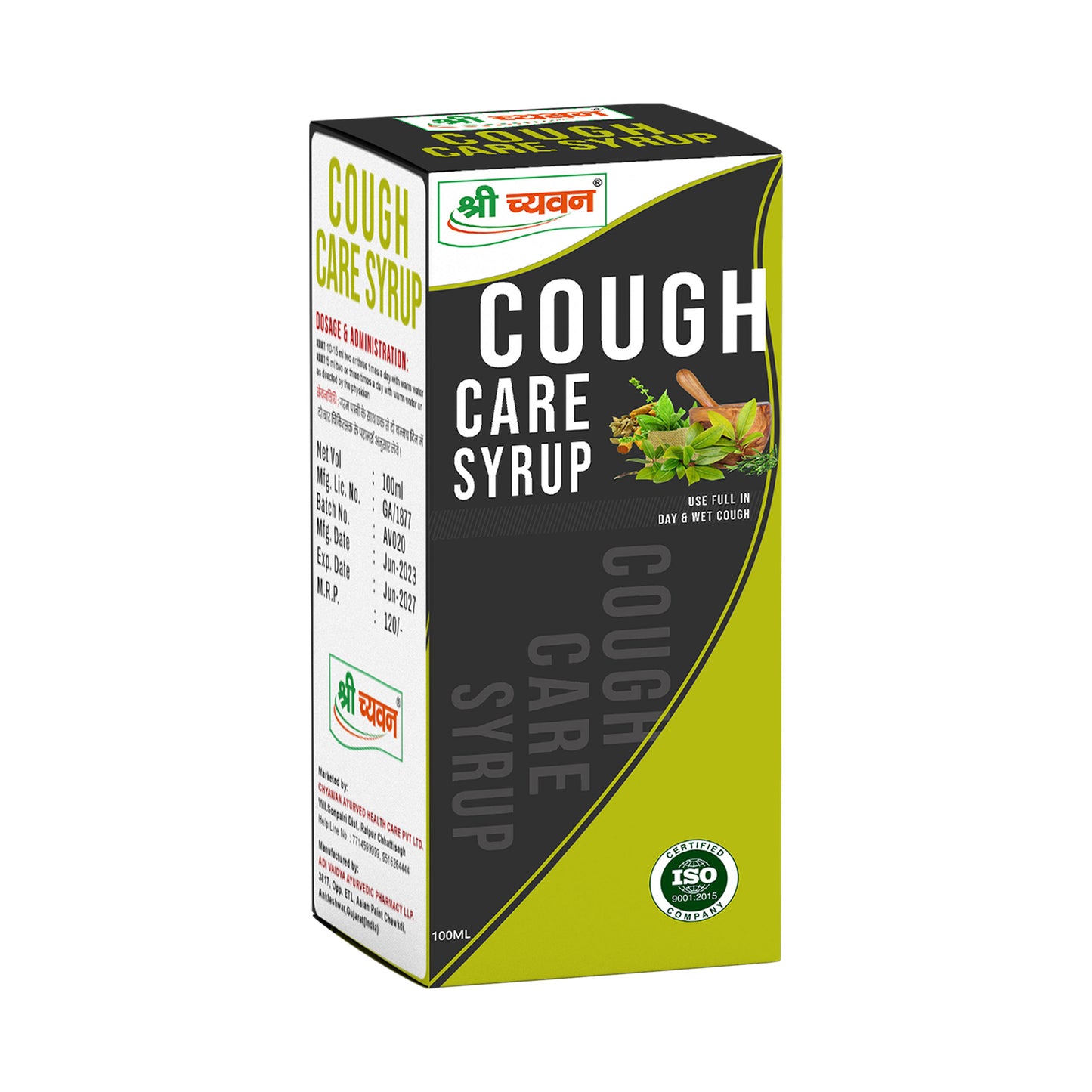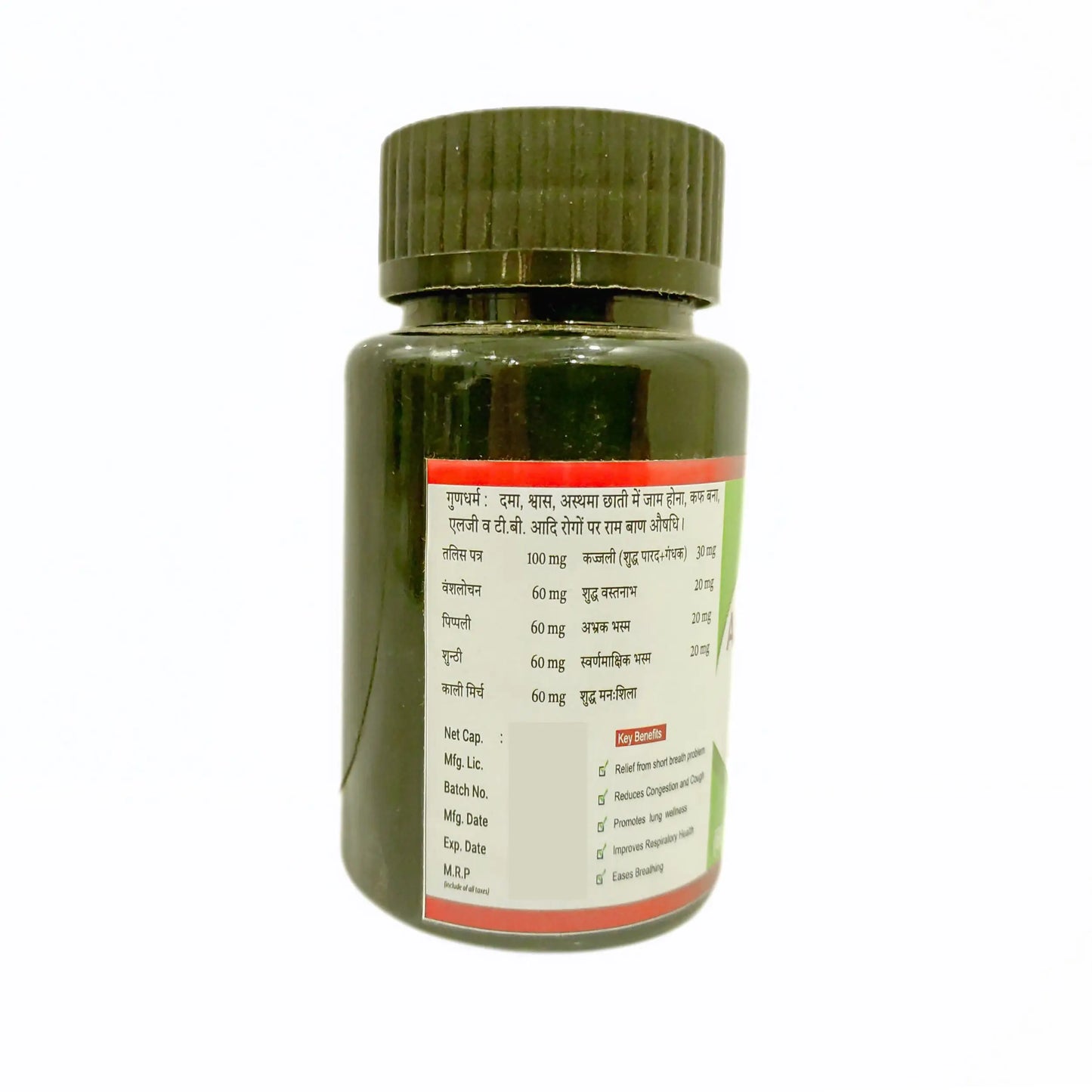In Ayurveda, asthma is known as "Swasa Roga." Ayurveda is an ancient system of medicine that originated in India, and it has its own unique approach to understanding and treating health conditions, including asthma. According to Ayurveda, asthma is primarily a disorder of the respiratory system, and it is caused by an imbalance of the doshas, which are the fundamental energies that govern the body.
Asthma in Ayurveda is typically attributed to an aggravation of the "Vata" and "Kapha" doshas, although "Pitta" dosha can also play a role in some cases. Here's a brief overview of how Ayurveda views asthma:
-
Vata Dosha: Asthma is often associated with an imbalance of the Vata dosha, which represents the air and ether elements. When Vata is aggravated, it can lead to the constriction and spasm of the airways, causing difficulty in breathing.
-
Kapha Dosha: Excessive Kapha dosha in the respiratory system can lead to the accumulation of mucus and phlegm, obstructing the airways and causing asthma symptoms.
- Pitta Dosha: In some cases, an increase in the Pitta dosha can also contribute to inflammation in the airways, leading to asthma attacks.
Causes of Asthma as per Ayurveda:
In Ayurveda, asthma is believed to have multiple underlying causes, and they are typically associated with imbalances in the doshas (Vata, Pitta, and Kapha) and other factors. Here are some of the common causes of asthma as per Ayurveda:
-
Dietary Factors: The consumption of foods that are cold, heavy, and mucus-forming is thought to aggravate the Kapha dosha, leading to the accumulation of mucus in the respiratory tract. Additionally, excessive consumption of dry, rough, and spicy foods can aggravate Vata dosha and contribute to airway constriction.
-
Environmental Factors: Exposure to cold, damp, and foggy weather is believed to increase the risk of asthma, particularly in individuals with a Kapha constitution.
-
Emotional Factors: Strong emotions, stress, and anxiety can disturb the balance of doshas and lead to asthma symptoms. Emotional disturbances are often associated with an aggravation of the Vata dosha.
-
Weak Immune System: A weakened immune system can make individuals more susceptible to respiratory infections and allergies, which can trigger or worsen asthma symptoms.
-
Genetic Predisposition: According to Ayurveda, an individual's constitution (Prakriti) can make them more susceptible to certain conditions, including asthma. A family history of asthma can be a contributing factor.
-
Occupational Hazards: Certain occupational exposures, such as working with dust, fumes, or other environmental irritants, can increase the risk of developing asthma.
-
Improper Lifestyle: Irregular daily routines, lack of exercise, and poor sleep habits can disturb the balance of doshas and contribute to asthma.
-
Toxic Accumulation: The accumulation of toxins (ama) in the body due to improper digestion and metabolism can impair respiratory function and lead to asthma.
-
Seasonal Changes: Ayurveda recognizes that certain seasons, such as the spring season, can aggravate allergies and respiratory conditions in susceptible individuals.
- Allergens: Exposure to allergens like pollen, dust mites, animal dander, or certain foods can trigger asthma symptoms, particularly in individuals with a predisposition.
Symptoms of Asthma:
Asthma is a chronic respiratory condition characterized by inflammation and narrowing of the airways, which can lead to a variety of symptoms. The severity and frequency of these symptoms can vary from person to person. Common symptoms of asthma include:
-
Shortness of Breath: People with asthma often experience shortness of breath, especially during physical activity or at night.
-
Coughing: Persistent coughing, particularly at night or early in the morning, is a common symptom of asthma. The cough may be dry or produce mucus.
-
Wheezing: Wheezing is a high-pitched whistling sound that occurs when breathing. It is a characteristic sign of asthma and is more prominent during exhalation.
-
Chest Tightness: Many individuals with asthma describe a feeling of tightness or discomfort in the chest. This sensation can be mild or severe.
-
Increased Mucus Production: Asthma can cause an increase in mucus production in the airways, leading to a productive cough and sometimes difficulty in clearing mucus.
-
Symptoms That Worsen at Night or Early Morning: Asthma symptoms often worsen at night and in the early morning hours, making it difficult for individuals to get a restful night's sleep.
-
Triggers: Symptoms may be triggered or worsened by exposure to specific irritants or allergens, such as pollen, dust mites, pet dander, smoke, cold air, or respiratory infections.
-
Decreased Peak Expiratory Flow (PEF): Peak Expiratory Flow is a measure of how quickly a person can exhale air. People with asthma may experience a decrease in PEF when their asthma is not well controlled.
- Difficulty Speaking or Breathlessness during Conversations: Individuals with asthma may find it difficult to speak in full sentences without taking extra breaths.
It's important to note that asthma symptoms can range from mild to severe, and they may come and go. In some cases, asthma may be well-controlled with appropriate medication and lifestyle management, while in others, it can be more persistent and require ongoing care.
Ayurvedic Treatment for Asthma:
Asthma is a condition in which a person's airways become inflamed, narrow and swell and produce extra mucus, which makes it difficult to breathe. In some cases, it may lead to a life-threatening attack. Asthma can be minor or it can interfere with daily activities and requires to be treated, ayurveda has number of potential herbs and ingredients used to cure Asthma without causing any side effects.
Our team of ayurveda experts have formulated a purely herbal and best ayurvedic medicine for asthmatics - Asthma Care Kit. It consists of capsule, syrup and drops prepared by combination of pure and natural ingredients.
Asthma Care Kit includes:
- Asthma Care Capsule: It is used for mainly in asthma, asthma congestion in the chest and phlegm formation, allergies TB, panacea on diseases, etc. It’s the best ayurvedic medicine for asthma.
Ingredients: It consists of Shudh vatsnabh, Talispatra, Vanshlochan, Sunthi, Kajjli.
How to use: Consume 1 capsule, three times day.
- Asthma Care Syrup: It is very beneficial in cough, allergy and asthma like Bronchial diseases.
Ingredients: It consists of Amba Haldi, Black Pepper, Sunth, Choti Pipal, Adusi, Choti Kateri, Kulinjan.
How to use: One tea spoon full, four times a day with warm water.
- Giloy Ras: It is helpful in all kinds of flu, fever and blood purifier. It also improves physical, mental health and develops immunity.
Ingredients: It mainly consists of Giloy Ras.
How to use: For children: Half to 1 teaspoon (5 to 10ml)
For adult: 1 to 2 teaspoon (10 to 20ml), thrice a day
- Panch Tulsi Drops: It's a natural immunity booster, also helps in dengue fever, diabetes, asthma, BP, Allergy, Swine flu, Cold, Fever, Blood Purification.
Ingredients: It consists of Tulsi leaves extract/juice.
How to use: Consume 1-2 drops in a cup of tea/coffee/ warm water, twice a day.
Benefits of treating Asthma through Ayurveda:
Treating asthma through Ayurveda offers several potential benefits, particularly when the approach is personalized and integrated with conventional medical care. Here are some ayurvedic remedies for asthma management:
-
Holistic Approach: Ayurveda takes a holistic approach to health, focusing on balancing the mind, body, and spirit. It doesn't just address symptoms but seeks to identify and correct the underlying imbalances in the body.
-
Personalization: Ayurvedic treatment is individualized based on an individual's constitution (Prakriti), dosha imbalances, and specific triggers. This personalized approach can be highly effective in managing asthma.
-
Reduction of Symptoms: Ayurvedic treatments can help alleviate asthma symptoms, such as coughing, wheezing, shortness of breath, and chest tightness, leading to an improved quality of life.
-
Reduced Reliance on Medications: In some cases, individuals with asthma may be able to reduce their reliance on conventional medications, such as bronchodilators and corticosteroids, under the guidance of an Ayurvedic practitioner. However, this should be done cautiously and in consultation with a healthcare provider.
-
Strengthened Respiratory System: Ayurveda offers practices like pranayama and yoga that can strengthen the respiratory system and improve lung function, helping individuals better manage their asthma.
-
Improved Immunity: Ayurvedic treatments aim to boost overall health and immunity, reducing the risk of respiratory infections and asthma exacerbations.
-
Management of Triggers: Ayurveda provides guidance on identifying and managing triggers, which is crucial in preventing asthma attacks.
-
Reduced Side Effects: Ayurvedic treatments primarily use natural herbs and remedies, which may have fewer side effects compared to certain conventional medications.
-
Preventative Measures: Ayurveda emphasizes preventive measures to reduce the frequency and severity of asthma attacks, allowing individuals to lead a more normal and active life.
- Enhanced Quality of Life: By addressing the root causes of asthma and offering strategies for reducing stress and promoting overall well-being, Ayurveda can lead to an improved quality of life for individuals with asthma.
In conclusion, ayurvedic cure for asthma offers a holistic and individualized approach to manage asthma, focusing on balancing the body's energies, strengthening the respiratory system, and reducing inflammation. Through personalized treatments, dietary modifications, herbal remedies, and lifestyle changes, Ayurveda aims to alleviate asthma symptoms, enhance respiratory function, and improve overall quality of life. However, it is essential to approach Ayurvedic treatments as complementary to conventional medical care. Individuals with asthma should consult qualified practitioners and work collaboratively with healthcare providers to integrate Ayurvedic practices safely and effectively into their asthma management plan. This integrative approach can provide a comprehensive strategy for managing asthma and promoting overall well-being.

